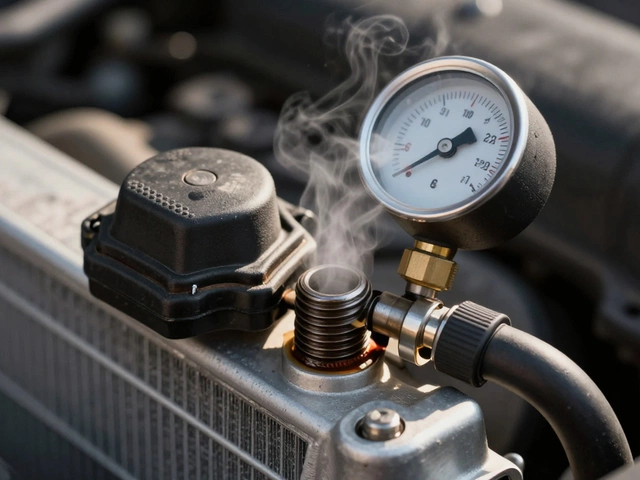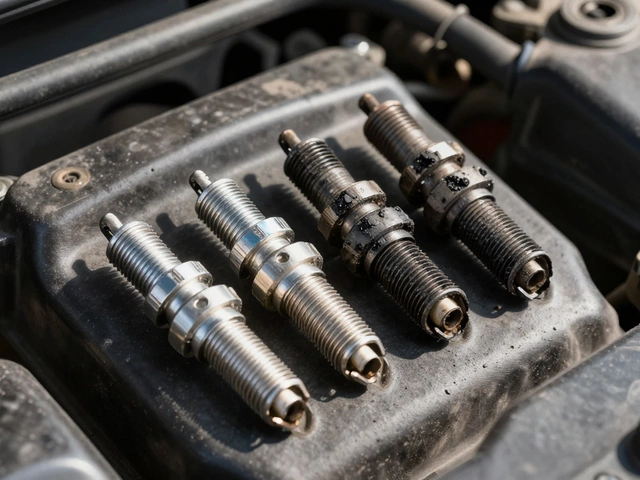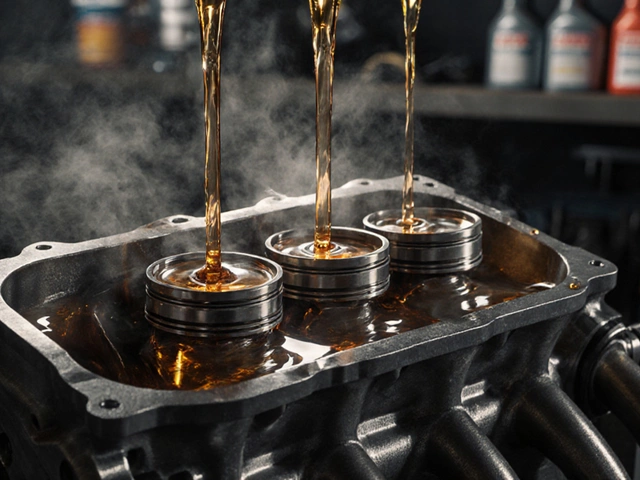Synthetic Oil: What It Is and Why You Should Use It
When you hear "synthetic oil" you might think it’s a fancy upgrade you don’t need. In reality it’s just a man‑made lubricant designed to work better than regular mineral oil. It flows easier when cold, stays thin when hot, and protects metal parts longer. That means fewer engine knocks, less sludge, and often better fuel mileage.
Benefits of Synthetic Oil
First off, synthetic oil handles extreme temperatures. Cold mornings? It thins out fast so the engine starts without strain. Summer heat? It resists breaking down, so the oil film stays intact. Second, it cleans better. The formulation includes detergents that keep deposits from forming on pistons and valves. Third, you usually get longer change intervals – many manufacturers recommend 7,500 to 10,000 miles instead of the classic 3,000‑5,000.
Another perk is engine wear reduction. Lab tests show synthetic oil can cut wear by up to 50% compared with conventional oil. That translates to a longer‑lasting engine and potentially higher resale value. Finally, synthetic blends often improve fuel efficiency by a small but measurable amount, especially in turbocharged or high‑performance engines.
Choosing the Right Synthetic Oil
Not all synthetics are created equal. Look at the viscosity rating on the bottle – the two numbers (like 5W‑30) tell you how the oil behaves in cold and hot conditions. Follow your car’s manual; if it calls for 0W‑20, stick with that. If you drive in very hot climates or tow heavy loads, a slightly thicker grade may be safer.
Check for industry approvals. Labels such as API SN, ACEA A3, or the manufacturer’s own certification mean the oil passed strict tests. If you have a performance car, you might see "full‑synthetic" versus "synthetic blend" – full means 100% man‑made base stock, which usually offers the best protection.
Price can be a concern, but remember you’re buying longer intervals and better protection. A cheap conventional oil might save a few dollars now but could cost more in engine wear down the road. Look for sales or bulk packs to keep costs reasonable.
Common questions pop up: "Can I mix synthetic with my old oil?" Yes, the mix won’t harm the engine, but it’s best to do a full drain and refill for optimal performance. "Do I need a special filter?" No, standard oil filters work fine; just replace them at each oil change.
In short, synthetic oil gives you smoother starts, stronger protection, and often longer change periods. If you’re into DIY maintenance, swapping to synthetic is a simple upgrade that pays off in engine health. Keep an eye on the viscosity, approvals, and your driving conditions, and you’ll be set for years of reliable performance.

When to Avoid Using Synthetic Engine Oil
Synthetic oil offers many benefits, but it's not always the best choice for your engine. Understanding when not to use synthetic oil can save you money and keep your engine running smoothly. In this article, uncover scenarios where conventional oil may be more suitable, such as with certain older vehicle models or specific engine types. Learn how to make the best oil choice for your vehicle's needs.
CONTINUE READING








